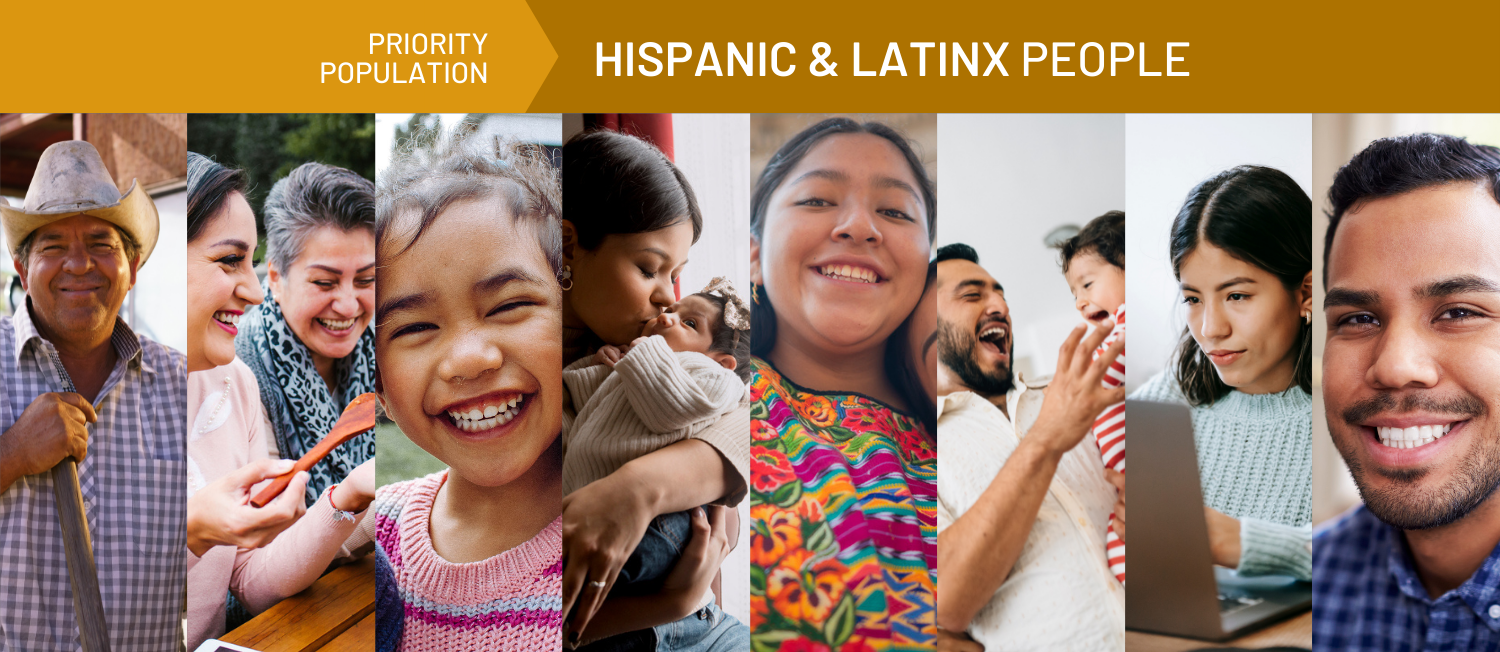Cultural Humility and Competence
Cultural humility is a lifelong process of transformative self-reflection and continuous learning. It involves recognizing and challenging power imbalances, systemic inequalities, and internalized biases and assumptions, in order to build more authentic and equitable relationships with individuals and communities from diverse cultural backgrounds. Cultural competence is the ability to understand, appreciate, and effectively interact with individuals from diverse cultural backgrounds, through the acquisition of knowledge, skills, and attitudes that promote respectful and effective communication and collaboration across cultures. While there are many similarities between cultural competence and cultural humility, a key difference is that cultural humility emphasizes a relational approach with no expectation of mastery, while cultural competence focuses on developing specific knowledge and skills that some feel can be “mastered.” While cultural competence and cultural humility are both accepted and practiced, there is debate about which method is more impactful and how to best leverage these practices to advance health equity. Best practice currently supports leveraging multiple forms of cultural responsiveness—both cultural competence and cultural humility together—to advance health equity.
Culture shapes beliefs and behaviors around health, impacts health outcomes, and enables social cohesion and belonging. Cultural humility and competence are critical skills for navigating culture as an important factor in advancing health equity and well-being for all. Culturally responsive practices (like cultural humility and competence) can help individuals and organizations more effectively build authentic relationships, engage with and address the needs and perspectives of diverse communities, and advance more inclusive, equitable health outcomes in our increasingly interconnected and globalized world. Potential positive impacts include improved cross-cultural communication, reduced misunderstandings, increased trust and collaboration between individuals and communities from diverse cultural backgrounds, and improved health outcomes, particularly for marginalized communities disproportionately impacted by health inequity.
Historically, systemic power imbalances—often based on race, ethnicity, and culture—resulted in deeply entrenched health inequities that inform our current contexts today. Cultural humility and competence were developed as strategies to address these culture-specific, legacy-driven inequities. With roots in the civil rights and social justice movements, cultural competence emerged in the 1980s and has since become widely practiced in fields from healthcare and social services to education and business. Cultural humility was developed in 1998 by Doctors Melanie Tervalon and Jann Murray-Garcia as a response to the limitations of cultural competence. Tervalon and Murray-Garcia recognized the need to shift away from acquiring knowledge and skills and achieving “competency,” and instead refocus on addressing power imbalances, systemic inequities, and the internalized biases and behaviors we all carry that perpetuate these systems. While initially focused on race and ethnicity, the understanding of the need for culturally responsive practices expanded to include other marginalized communities, including the LGBTQ+ community, the disabled community, non-Christian religious groups, and communities with primary languages other than English.
Today, all of these groups—BIPOC, LGBTQ+, disabled, minoritized religions, and speakers of non-English languages—continue to experience culture-based health inequities and continue to benefit from widening culturally responsive practices. Factors such as globalization, demographic shifts, and the increasing societal focus on social justice and health equity have helped advance cultural responsiveness in many fields. However, there is still much work to be done to address the systemic inequalities and power imbalances that continue to impact marginalized communities. Changemakers are working to mainstream these practices, as well as advocating for centering people with lived experience, intersectionality, ongoing self-reflection and personal change, and an emphasis on shifting power and health equity themselves, not just the way we talk about them.
Cultural humility and competence are important tools for improving cross-cultural communication and understanding, but they must be coupled with broader efforts to address these systemic issues in order to advance health equity and well-being for all. Changemakers and stewards can influence cultural humility and competence at scale by participating in and promoting training and education, cultivating opportunities for cross-cultural collaboration, centering the voices and leadership of marginalized communities, and advocating for policies and practices that promote health equity and social justice. Locally, communities and changemakers can take action by deeply listening to and engaging in dialogue with individuals from diverse cultural backgrounds (including race, religion, gender, orientation, ability, language, etc.), advocating for underlying principles of cultural responsiveness—like Critical Race Theory—and committing to life-long processes of self-reflection, unlearning, relearning, and healing together.
Resources & Tools
Why Is It So Hard To Find a Therapist? These Barriers Stop Washingtonians From Getting Help
Story - Written
Brought to you by The Seattle Times
Centering and Celebrating Culture in Public Health
Story
-
 Original
Original
Brought to you by Community Commons
The Black History of Public Health: From Legacies of Racism and Resistance to Futures of Equity and Justice
Story
-
 Original
Original
Brought to you by Community Commons
You Had Me at My Best Life: New Resources For Meaningful Conversations in National DPP Session Zero
Resource - Webinar
Brought to you by CDC
What is Cultural Humility? The Basics
Resource - Website/webpage
Brought to you by University of Oregon
Tips for Disaster Responders: Cultural Awareness When Working In Indian Country Post-Disaster
Resource - Guide/handbook
Cultural Humility vs. Cultural Competence — and Why Providers Need Both
Resource - Blog
Brought to you by Boston Medical Center Corporation
The Spirit Catches You and You Fall Down: A Hmong Child, Her American Doctors, and the Collision of Two Cultures
Resource - Book
Brought to you by FSG
Cultural Humility: Essential Foundation for Clinical Researchers
Resource - Journal Article
Brought to you by Elsevier, Inc.
How Culture Influences Health
Resource - Website/webpage
Brought to you by Canadian Pediatric Society
Data & Metrics
Related Topics









































